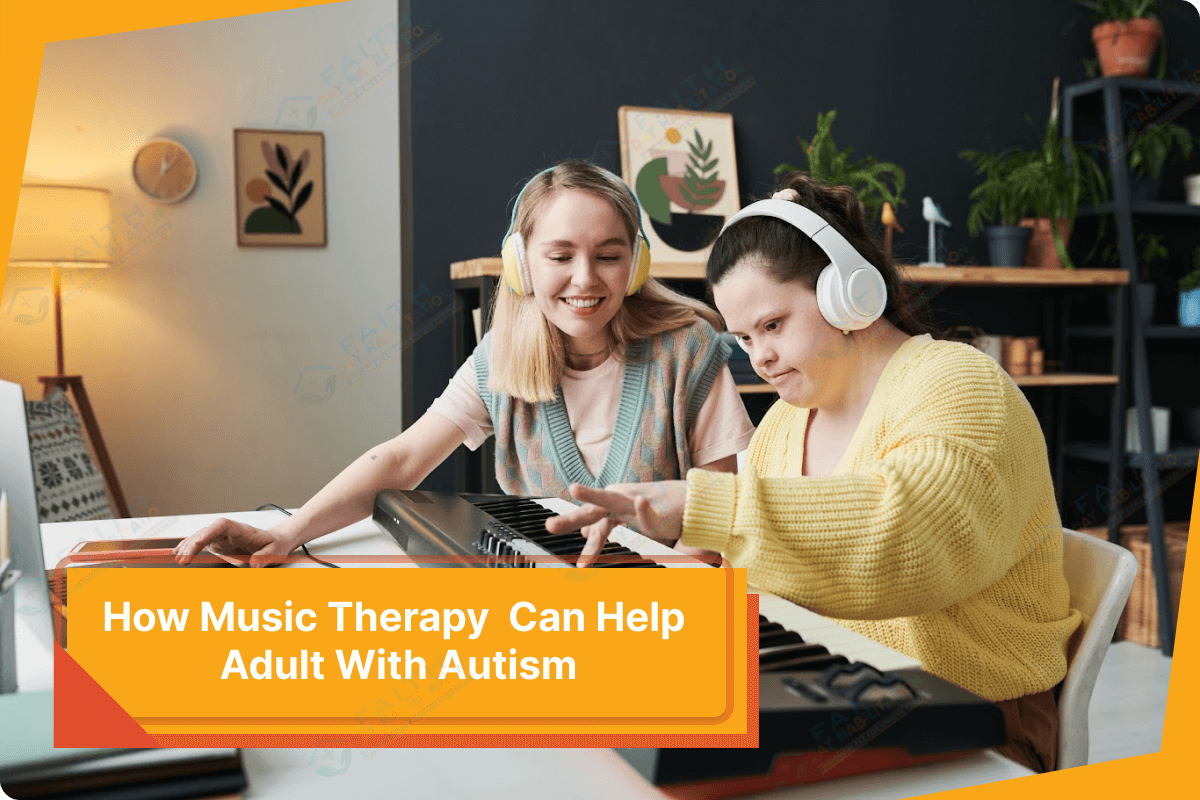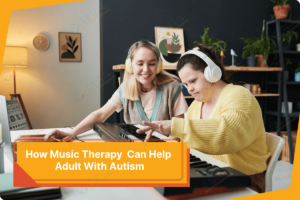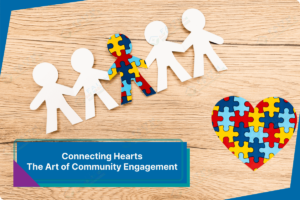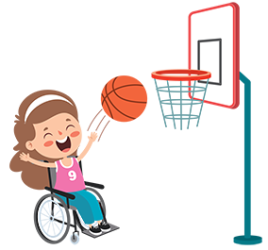Adults with Autism spectrum disorder encounter challenges in interacting and communicating socially, this leads to the inability to express themselves as well as interact with the society where they are found. Although, there are other types of therapy and treatments for autistic adults, such as applied behavior analysis, cognitive behavioral therapy, social skills training, sensory integration therapy, occupational therapy, speech therapy, medication, and alternative remedies, music therapy is basically focused on the improvement of social and communication skills through the application of musical experiences and relationships developed through these experiences to enable communication and expression. Music therapy helps to develop social skills like shared attention, communication, and play. Music is said to have a universal language that helps to improve cognitive functions. Music also reduces stress and anxiety levels as well as distressed behavior in autistic adults. Music therapy is not used to treat autism spectrum disorder alone, it is also used in many medical conditions such as Alzheimer’s and depression. It has a positive effect on the improvement in the learning behavior of the patients. Autistic adults need more of our attention and compassion. Music therapy and music lessons can be used to build a comfortable environment for them.
Here are some benefits of Music therapy for autistic adults.
- Stress reduction
Music has the power to activate happy hormones and affect the part of the brain which controls our emotions positively. As much as it relieves stress, it also has the ability to reduce panic attacks and depression. - Improvement in social behavior
To an autistic person, listening to music is calming and peaceful. It is therefore advisable to use music as an instrument in improving their social behaviors. - Improvement in communication skills
Music reduces the shyness and hesitation of people with autism. Music helps autistic adults to share a bond with their therapists and even their immediate environment while practicing. - Improvement of motor functions
The coordination of our senses happens in the brain, which acts as a relay center. When people with autism listen to the notes of a melody, they try to coordinate their senses. In this way, music helps them improve their motor skills. - Other benefits of music therapy include the improvement of overall physical rehabilitation, facilitation of movement, increase in motivation to engage in the treatment, offering of emotional support for the person and his or her family, and Provision of an outlet to express feelings.
Music Recommendation for Autistic adults
As much as music therapy has its benefits, it’s important to note that not all types of music are good enough for music therapy. While some recommended music is very effective in the process of Music therapy, some music is not just suitable for therapy in autistic adults. The recommended type of music is classical, symphonic, or generally instrumental music that is harmonious and pleasant, rather than modified music. Modified music, whether or not it is harmonious and often lacks the melody, rhythm, and richness which is characteristic of symphonic music.
Music therapy should involve the following stages:
- Assessment
This is the process where the need of an autistic adult is recognized. - Goal-setting
This is the process whereby a personalized music therapy program is developed by a therapist based on the result of the assessment. - Activities
These activities are included in music therapy sessions; songwriting, movement, singing, playing instruments, listening to music, working in groups, and improvisation. - Evaluation
This process simply checks the effectiveness of the music therapy and how well the adult is responding to the treatment.
The goal of music therapy in autistic adults is to see that they improve in these five areas;
Social skills: these skills include maintaining eye contact, taking turns, peer-to-peer interaction, and participation in group discussions. This is achieved through musical interventions such as the playing of instruments and discussion of musical lyrics.
The emotional skills: this is focused on improving their emotional background by learning to distinguish between different kinds of emotions such as sadness, anxiety, joy, etc. This could also be in form of having a safe space to express their different feelings, with the help of a therapist. This can be achieved by the use of musical interventions such as improvisation, playing of instruments, or lyric analysis.
Cognitive skills: this involves the employment of music to help with keeping a focus on a task and also enhancing short-term memory skills. These goals are achieved through musical interventions like the active playing of instruments or musical storytelling.
Communicational skills: this involves the use of music therapy to work on communication skills, like learning and implementing the right conversational skills, the ability to interpret facial expressions, or pronounce consonant sounds. These goals can be achieved through musical experiences like singing, playing instruments, and writing songs that involve stories.
Physical skills: Music is said to be an intrinsic force, it has the ability to help us in relaxation, motivates us to move due to its rhythm, and also helps us establish an internal tempo. Music therapy addresses pain management and also gait training. The employment of Music interventions such as listening to music, movement to music/dancing, and playing of instruments.
It is important to note that Music therapy provided by a Board Certified Music Therapist can be beneficial to many individuals with autism who show high interest and motivation for music. There are also simple ways in which music can be incorporated at home, school, or during other therapy sessions such as speech therapy, occupational therapy, or applied behavior analysis (ABA) therapy.
Here are five methods to use music in therapy, these methods are useful for parents, family members, teachers, and therapists.
If your autistic adult can’t fill in the last word to the phrase, a movement to imitate will help them. This will help make your autistic adult feel successful even if they are still learning to talk.
Setting a Social Story to a familiar tune or chanting it to a rhythmic beat: Melody and rhythm make the script easier to remember and can help add variety when reading the same story multiple times.
Use novelty to increase motivation: For example, sing in a silly voice, create sound effects, or bring out the bubbles! This can be especially effective if your autistic adult appears fatigued or more difficult to engage during instruction.
Choose relevant musical rewards: Musical rewards are to incorporate them into the task itself. Embedding motivators into instruction is a common approach during Pivotal Response Treatment®, which is frequently used by ABA providers.
Help your autistic adult tap their hand to a beat with each syllable when working on speech imitation.










